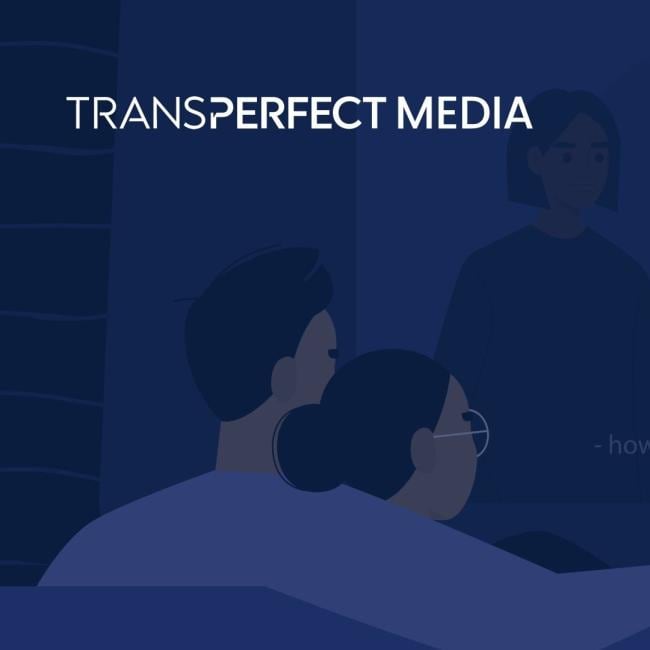The Subtext Behind Parasite’s Win? Subtitles!


TransPerfect couldn’t have been more excited to see the international hit Parasite sweep accolades at the 92nd Academy Awards, AKA the Oscars! Parasite’s win brought recognition to deserving Korean programmers, screenwriters, actors, producers, and studios. It also highlighted how subtitles in particular enable audience members to experience a film or television in its native language as intended, but still appreciate and understand the dialogue. Don’t worry: there are no movie spoilers ahead, just a peek behind the curtain to explore how subtitling enabled a fascinating movie to resonate with a global audience.
Caption This – Understanding Subtitles
While no one is claiming subtitles are fully responsible for Parasite’s Oscar wins, the film’s story couldn’t have reached non-Korean speakers without good subtitles. By linking the dialogue to depictions and original language, subtitles allow for better comprehension. We learned by speaking with Hannah Brehm of TransPerfect’s Media Services team that this isn’t easy to do, especially because subtitlers have obstacles like character limitations and time restrictions. Not to mention, they have to make the judgment call on what word choices are going to drive that connection to the on-screen visuals.
Subtitles are not meant to be a word-for-word translation; instead, their function is to articulate what the actors are saying by universally translating meaning. Audience members are not simply reading text scrolling on a screen, they are receiving a painted picture of information, much like reading a novel. Subtitles become a crucial component in the viewer’s emotional experience, and conveying concepts such as humor, sadness, or joy which add another layer of difficulty when the viewer’s background might not be the same. As a company, TransPerfect is happy that the appreciation and support for this film has reached global acclaim and only seems to be growing!
Bridging Language and Cultural Gaps is just a Click Away
Now that you have a basic understanding of how Parasite used subtitles to connect with the plot and storyline, let’s briefly explore other programming that touches on Asian characters and cultures. There is an entire world of intricate and zestful programs available to you through Netflix, Hulu, and Rakuten Viki, just to name a few streaming services. Popular shows that feature Asian characters and glimpses into different cultures that you might have already heard of are Boys Over Flowers, Queer Eye: We're in Japan!, and Tidying Up with Marie Kondo based on the KonMari method and Kondo’s bestselling book The Life-Changing Magic of Tidying Up: The Japanese Art of Decluttering and Organizing. All these shows not only use subtitles as an avenue of audience engagement, but have other significant translation components such as interpretation and instances of cultural adaptation.
Translation bridges language and culture gaps within media by playing on our universal understanding of love, self-improvement, and family dynamics, as evidenced by the popular shows mentioned above. Fundamentally, they show us we don’t all need to speak the same language to feel compassion for unrequited love or the desire for a clean, organized lifestyle.
Fun Fact: If you check out some of the behind the scenes content for the Queer Eye season within Japan, they actually discuss how they used interpreters and locals to achieve a culturally sensitive program—even if the interpreters aren’t seen in real time.
Break a Leg – TransPerfect’s Impact
Because of the intentionality of its subtitles, visuals, cinematography, and plot, Parasite rightfully joined the hall of Oscar winners. To cap off the film’s historic night, Parasite became the first foreign-language Best Picture Oscar winner in the program’s 92-year history. Many talented teams and individuals played a role in the film’s international success, including our Lylo Media Group division, who—in collaboration with the company The Jokers Films—helped bring Parasite to French-speaking moviegoers. No matter the viewers, subtitling work connects an audience with the universal concept of storytelling through media.
The many ways that translation services mingle with media doesn’t end with Asian programming and subtitling. Check out our blog post on a Hybrid Approach to Language Dubbing, and stay tuned for insights into other non-English programming, radio dramas, telenovelas, plays, and more. We hope you enjoyed this small glimpse into the subtitles and Asian programming, and if you haven’t already seen Parasite, it’s definitely time to organize a viewing party!



